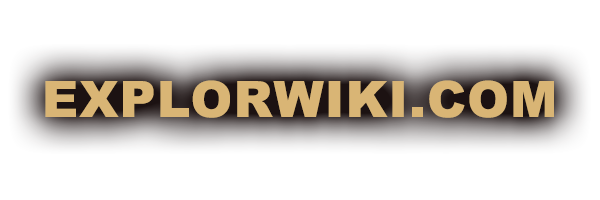Why Philosophy Books Matter
Philosophy books hold a special place in literature, offering readers a treasure chest of benefits. They don’t just hand you knowledge; they pull you into the thick of deep thoughts and life’s big questions.
The Flavor of Philosophy in Literature
Philosophy gives literature a kick. Through philosophical themes and ideas, authors dig into the essence of reality, right and wrong, and the twists of the human mind. These explorations make stories richer and brainier.
Themes like existentialism and absurdism can bend narratives into thought-provoking journeys, making us ponder the meaning of it all. For instance, many famous literature quotes owe their magic to hidden philosophical nuggets.
Why Dive into Philosophy Books?
Reading philosophy books dishes out a feast of goodies:
- Brain Boost: Philosophy pushes you to break down arguments and juggle different viewpoints. Handy skill, whether you’re cramming for finals or hashing out real-life decisions.
- Problem Genius: Tussling with philosophical puzzles sharpens your knack for solving problems, tackling complex dilemmas with creativity.
- Eye-Opener: Books on ethics, for instance, help you get your head around different ethical theories and how they play out in everyday life.
- Self-Discovery: Philosophy nudges you toward self-reflection, letting you sift through your own beliefs and values. This can spark personal growth and smarter choices.
- Talk the Talk: Chewing over philosophical ideas hones your ability to speak your mind clearly and persuasively.
These perks make philosophy books more than just reads; they’re tools for sprucing up both your brainpower and personal growth. If you’re curious about how philosophy mingles with literature, take a dip into best philosophical novels and postmodern literature characteristics for a broader look at how philosophy colors stories and themes.
Must-Read Philosophy Books
Timeless Classics
These philosophy classics have weathered centuries of scrutiny and continue to shape modern thought. They lay down the basics and dish out timeless wisdom for anyone curious about life’s big questions.
| Author | Book Title | Year Published |
|---|---|---|
| Plato | The Republic | 380 BC |
| Aristotle | Nicomachean Ethics | 340 BC |
| René Descartes | Meditations on First Philosophy | 1641 |
| Immanuel Kant | Critique of Pure Reason | 1781 |
| John Stuart Mill | On Liberty | 1859 |
These OGs (Original Geniuses) give you the 101 on classic Western philosophy. They pave the road for discussions on justice, morality, and what’s real. If ethical theories are your jam, check out our deep dive on ethical theories in philosophy to expand your mind even further.
Modern Thinkers
Modern philosophy books pick up where the classics left off, spicing things up with fresh perspectives and tackling today’s big issues. They are must-reads for anyone wanting to see how philosophical thought has morphed over time.
| Author | Book Title | Year Published |
|---|---|---|
| Jean-Paul Sartre | Being and Nothingness | 1943 |
| Simone de Beauvoir | The Second Sex | 1949 |
| Michel Foucault | Discipline and Punish | 1975 |
| John Rawls | A Theory of Justice | 1971 |
| Martha Nussbaum | The Fragility of Goodness | 1986 |
These newer works dig into existentialism, feminism, and social justice. If you’re into how rules and power shape society, Michel Foucault’s Discipline and Punish is a must-read. It’s especially relevant for those exploring postmodern literature characteristics.
Together, classic and modern philosophy books are a gold mine for anyone wanting to sharpen their critical thinking and engage with meaty topics. Whether you’re uncovering ancient ideas or diving into modern debates, these reads are essential. Looking for something with a bit more drama? Check out our picks for the best philosophical novels – where storytelling meets deep thought.
Must-Read Philosophy Genres
Philosophy’s like a big ol’ feast for your brain, each genre serving up its own tasty morsels of thought. We’re diving into four juicy genres you just gotta sink your teeth into.
Epistemology
Ever wonder what it means to truly know something? Epistemology digs into that – the study of knowledge and belief. It’s the nitty-gritty of figuring out what we know and how we know it.
Burning questions in epistemology:
- How’s knowing different from just believing?
- Can what we see or hear really be trusted?
| Must-Reads | Brain Behind It |
|---|---|
| “Critique of Pure Reason” | Immanuel Kant |
| “Meditations on First Philosophy” | René Descartes |
Metaphysics
Buckle up for the big stuff. Metaphysics is all about the nature of reality – what’s real, what’s mental, and what’s even possible.
Deep thoughts in metaphysics:
- What does it mean to be?
- How do objects and their qualities exist?
| Must-Reads | Brain Behind It |
|---|---|
| “Being and Time” | Martin Heidegger |
| “Metaphysics” | Aristotle |
Ethics
Ethics is where philosophy gets practical—figuring out right from wrong. It’s your moral GPS, guiding you through questions about what it means to live a good life.
Key questions in ethics:
- What’s the right thing to do?
- How should people behave?
| Must-Reads | Brain Behind It |
|---|---|
| “Nicomachean Ethics” | Aristotle |
| “Groundwork of the Metaphysics of Morals” | Immanuel Kant |
For a closer look at ethical theories, check out our deep dive on ethical theories in philosophy.
Aesthetics
Aesthetics is the philosophy of beauty and art. Ever stood in front of a painting and wondered why it moved you? That’s aesthetics in action.
Artful questions in aesthetics:
- What makes something beautiful?
- How do we react to art?
| Must-Reads | Brain Behind It |
|---|---|
| “The Critique of Judgment” | Immanuel Kant |
| “Aesthetics” | Friedrich Schiller |
For more on philosophical novels exploring beauty and art, see our list of the best philosophical novels.
Getting into these philosophy genres unlocks a treasure chest of ideas about existence, knowledge, morality, and beauty. Dive in and let your mind wander!
Deep Dive into Philosophy Books
Ready to level up your bookshelf? If you’ve mastered the basics and want to dig a little deeper, diving into the different branches of philosophy is your next move. Let’s chat about two big hitters: Analytical Philosophy and Continental Philosophy.
Analytical Philosophy
Analytical Philosophy is all about being clear and logical. It kicked off in the early 20th century and zeroes in on using formal logic and breaking down language to tackle big questions. If you’re into getting things down to details and love a good, tidy argument, this is your jam.
What’s the Vibe?
- Breaking down language
- Logical thinking
- Scientific methods
| Aspect | Description |
|---|---|
| Founders | Bertrand Russell, Gottlob Frege |
| Main Areas | Language, Logic, Science |
| Big Reads | “Principia Mathematica”, “Tractatus Logico-Philosophicus” |
It’s pretty close buddies with the philosophy of science, so if you’re into stuff like philosophy of science and ethical theories, you’ll find it super interesting.
Continental Philosophy
On the flip side, there’s Continental Philosophy. It’s a bit more on the artsy side, diving into human experiences, society, and culture. Think existentialism, phenomenology, and structuralism – the works.
What’s the Vibe?
- Human experiences
- Culture and society
- Critiquing modern times
| Aspect | Description |
|---|---|
| Founders | Martin Heidegger, Jean-Paul Sartre |
| Main Areas | Human Experience, Society |
| Big Reads | “Being and Time”, “Phenomenology of Spirit” |
This one’s a goldmine if you dig literature and the arts. Perfect for fans of literary criticism and postmodern literature.
Both Analytical and Continental Philosophy give you new lenses to look at the world. Whether you’re into detailed logic puzzles or pondering human existence, there’s something for everyone. These branches add depth and give you a more rounded view of what philosophy’s all about. Happy reading!
Philosophy Books for Different Interests
If your curious brain is tingling and philosophy piques your interest, you’re in for a treat! Here’s a rundown of different philosophical playgrounds with some must-read books to get the gears turning.
Philosophy of Science
Think of philosophy of science as the meta-science that questions everything about, well, science. It dives into the how’s and why’s of scientific practices, and what really counts as “science.” It tackles everything from whether science can reveal the true nature of reality to how scientific theories evolve.
| Topic | Core Ideas |
|---|---|
| Scientific Method | Gathering evidence, hypothesis testing |
| Scientific Realism | Scientific truths and their nature |
| Theory and Observation | Models, experiments, and what they tell us |
For the inquisitive minds dying to dig into the roots of scientific thinking, these books offer a thorough, thought-provoking journey. Curious about how these heavy ideas reflect in literature? Check out our page on postmodern literature characteristics.
Political Philosophy
Political philosophy is where the big questions about power, rights, and justice come alive. It’s all about understanding the best ways to manage people, resources, and rights—basically, how to run a fair game.
| Topic | Core Ideas |
|---|---|
| Justice | Fairness in distributing resources |
| Authority | What makes rule legitimate |
| Rights | Balancing individual freedoms with collective good |
If pondering the nature of governments and their influence on society ruffles your feathers, then dive right in. This field tackles questions that are both ancient and hyper-relevant to today’s politics. Want more on ethical dimensions? Dig deeper into ethical theories in philosophy.
Philosophy of Mind
The philosophy of mind is like peeking behind the curtain of consciousness and mental phenomena. It entangles itself with understanding thoughts, feelings, and how our minds and bodies connect.
| Topic | Core Ideas |
|---|---|
| Consciousness | What it feels like to be you |
| Mental States | Beliefs, desires, what’s cooking in your head |
| Mind-Body Problem | How mind meets matter |
For those fascinated by what makes us tick—from neurons firing to abstract thoughts—these books are a goldmine. This area doesn’t just fuel the intellect but adds depth to literary analysis. Need some reading recommendations that marry these themes? See our list of best philosophical novels.
By delving into these philosophical areas, you not only gain a sharper understanding of complicated concepts but also fine-tune your critical thinking, handy in both school and every day. So grab a book, and let the pondering begin!
Jazzing Up Your Philosophy Book Reading Game
Philosophy might come off as dry, but trust me, crack it open, and you’ll find it’s a goldmine. For those daring enough to dive into these ancient texts, here’s how you can elevate your reading experience.
Reading Hacks to Stay Sane
Wrestling with philosophical texts? Don’t sweat it—these tricks will help you make sense of it all:
- Scribble Away: Keep a pen handy. Jot down main ideas, confusing stuff, and your own thoughts.
- Stay Awake: Don’t just read—argue with the text. Agree, disagree, and make it personal.
- Chunk It Up: Break down monster-sized chapters into bite-sized pieces. Pace yourself.
- Seek Backup: Use easy-to-digest summaries or commentaries to get past the tough bits.
Chat with Fellow Thinkers
Philosophy isn’t a solo sport. Chatting with others can flip a light switch in your brain. Here’s why you should jump into discussion groups or forums:
- Varied Takes: Encountering different views broadens your horizons.
- Brain Workout: Debating ideas sharpens your reasoning skills.
- Philosophy Buddies: Being around folks who get you boosts your morale.
Curious about ethical theories in action? Swing by our piece on ethical theories in philosophy.
Bring Philosophy into Real Life
Philosophy isn’t just navel-gazing; it can totally reshape your daily grind. Here’s how you can bring its wisdom into everyday situations:
- Reflect Often: Pause and give a thought to your core beliefs and choices.
- Live Ethically: Let philosophical principles steer your moral compass.
- Stay Curious: Be open to fresh ideas and ready to adjust your thoughts.
Here’s a list of some of the best online resources where you can legally download books for free, with descriptions and links to their websites:
1. Project Gutenberg
- Description: One of the oldest and largest sources of free eBooks. Project Gutenberg offers over 60,000 public domain books, including classic literature and works in various languages.
- Website: Project Gutenberg
2. Open Library
- Description: A project of the Internet Archive, Open Library provides access to millions of eBooks, including many that are in the public domain. You can borrow or download titles in various formats.
- Website: Open Library
3. Google Books
- Description: Google Books allows you to search a vast collection of digitized books. While not all are free, many public domain works can be downloaded in full for free.
- Website: Google Books
4. ManyBooks
- Description: A user-friendly site offering thousands of free eBooks in various genres, ranging from classics to indie publications. Books are available in several formats like ePub, Kindle, and PDF.
- Website: ManyBooks
5. Feedbooks
- Description: Feedbooks offers a public domain section with a wide collection of free eBooks. The site features classic literature and allows easy downloads in multiple formats.
- Website: Feedbooks
6. Internet Archive
- Description: The Internet Archive has millions of free books, movies, music, and more. Its book collection includes both public domain works and more modern books available through lending.
- Website: Internet Archive
7. Library Genesis (LibGen)
- Description: Known for its vast selection of academic papers and textbooks, Library Genesis (LibGen) offers access to scholarly and scientific works as well as fiction, though legality varies by region.
- Website: Library Genesis
8. Smashwords
- Description: Smashwords is a platform for independent authors, offering a large collection of free eBooks alongside paid options. Genres range from fiction and non-fiction to poetry and essays.
- Website: Smashwords
9. BookBub
- Description: While primarily a platform to find deals on paid eBooks, BookBub also highlights free eBooks available for download across various genres, including bestsellers and indie authors.
- Website: BookBub
10. DigiLibraries
- Description: DigiLibraries offers free eBooks in multiple genres, available for download in formats like PDF, ePub, and Kindle. The site is easy to navigate with a large range of genres to explore.
- Website: DigiLibraries
These websites provide a mix of public domain books, indie titles, and academic works, making it easy to find free eBooks legally across a wide range of genres and formats.
By taking notes, diving into lively debates, and weaving philosophical concepts into your life, you can unlock the riches hidden in philosophy books. Happy reading!
Here some recommended links selected for you: The Best Books of the Month, Todays best Deals at Amazon, Best Sellers in Cell Phones & Accessories and last but not least the easy and great way to send a gift for the holidays: Amazon.com eGift Card (Instant Email or Text Delivery).




